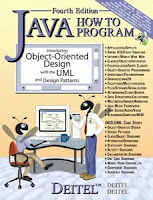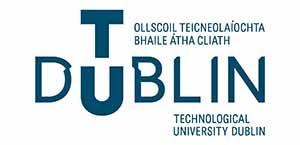The secrets from the science of persuasion...
... an interesting look at the factors that influence us to say "yes" to the requests of others
Thursday, January 31, 2013
Wednesday, January 30, 2013
Need books?
Good news at the start of a new semester!
This semester we are running a pilot scheme - undergraduates can borrow 6 books instead of 5. It is a pilot scheme because we want to be sure it benefits you, the students!
Over the coming semester we will ask for your feedback. Let us know what you think...
This semester we are running a pilot scheme - undergraduates can borrow 6 books instead of 5. It is a pilot scheme because we want to be sure it benefits you, the students!
Over the coming semester we will ask for your feedback. Let us know what you think...
Tuesday, January 29, 2013
What were our Business and Sports students reading in 2012?
The top 10 books for Business and languages were:
- Business accounting
- Project management: a managerial approach
- E-commerce: business, technology, society
- Services marketing: integrating customer focus across the firm
- Modern management: theory and practice for Irish students
- E-business and e-commerce management
- Global marketing: a market-responsive approach
- Designing systems for internet commerce
- Grammaire progressive du Francais
- Project management: strategic design and implementation

The top 10 books for Sport, health and wellness were:
Monday, January 28, 2013
What books were Social Science students reading in 2012?
The top 10 books for Law, Economics, Public administration and Education were:

The top 10 books for Psychology and Sociology were:

- Principles of Irish law
- The Irish legal system
- Guidelines on traveller education in second-level schools
- Principles of economics: an Irish text book
- Principles of organizational behaviour: an Irish text book
- Management and organizational behaviour
- Business law
- Organizational behaviour
- Disability and social policy in Ireland
- Understanding organizations
The top 10 books for Psychology and Sociology were:
- Law of child care
- Simply psychology
- Sociology: an global introduction
- An introduction to sociology in Ireland
- Attachment theory, child maltreatment and family support
- Early childhood: a guide for students
- Psychology
- Introduction to psychology: gateways to mind and behaviour
- Challenging behaviour: principles and practices
- Lifespan development
Friday, January 25, 2013
What were our Computing & Engineering students reading in 2012?
The top 10 books for Computing were:
- Java: how to programme
- Java simplified: for students and beginners
- Systems analysis and design
- Operating systems concepts
- Introduction to systems analysis and design
- An introduction to programming using Visual Basic 6.0
- Cisco CCNA #640-607 preparation library
- JavaServer pages: your visual blueprint for designing dynamic content
- Managing the information technology resource
- C++ simplified

The top 10 books for Math, Science and Engineering were:
- C program design for engineers
- Principles of electric circuits: electron flow version
- Electronic devices and circuits
- DSP first: a multimedia approach
- Mechanical engineering design
- Physics: principles and applications
- Malvino electronic principles
- Text and tests 3 mathematics
- Text and tests 1 mathematics
- Electrical installation work

Thursday, January 24, 2013
Opening hours during the midterm break
The library is open as follows:
- Wednesday 23rd Jan: 9.15am - 8.00pm
- Thursday 24th Jan: 9.15am - 5.00pm
- Friday 25th Jan: 9.15am - 5.00pm
- Monday 28th Jan: 9.15am - 5.00pm
- Tuesday 29th Jan: 9.15am - 5.00pm
- Wednesday 30th Jan: 9.15am - 8.00pm
Wednesday, January 23, 2013
Forgotten something?
Don't forget to return your library books before mid-term so that you don't face overdue fines on your return! You can:
- leave them in the Book Return Box outside the main library door
- return them to the library desk
- renew them at the library desk (just bring your student card)
- renew them online
Tuesday, January 22, 2013
2012 was the library's busiest year ever!
Over 5,000 of you are members of our library and you have been busy using the library databases! During 2012 the databases were accessed nearly 60,000 times. The most popular databases include:
- Academic Search Complete: 5,000 user sesssions
- Business Source Complete: 4,500 user sessions
- Emerald Fulltext: 25,000 user sessions
- Infotrac Onefile: 10,000 user sessions
- Science Direct: 12,000 user sessions
In September, we introduced of our federated search engine, One Search, and that made it easier to search the databases. A federated search engine allows you to search all of the databases simultaneously; it cuts out unnecessary duplication and helps you to find good quality resources more quickly.
We hope you will continue to use these resources throughout 2013!
Monday, January 21, 2013
Finding it difficult to concentrate?

There is no doubt about it...studying for exams is tough. But for many people, the problem often lies less in the subject material they are studying and more in the ability to get themselves motivated and to concentrate on the material they are reading.
Have you ever noticed that when it comes to study time, you get an incredible urge to do anything but that? ...For example, tidying your room might seem like the most important thing in the world at that moment.
To help you to address this problem, there are some useful guides for your consideration on the ITB Library Hub. See in particular the guides on Improving Concentration & Memory.
For your further consideration:
The University of Cambridge also has very useful guide on improving concentration on their website.
Virginia Tech University have published a really good guide called 'Strategies for improving concentration & memory', which takes a more interactive approach.
Harvard University have put together a useful guide titled 'Tips for being engaged, effective, and enlivened' which is also worth a read.
All the best for your exams!
Friday, January 18, 2013
What are you doing this weekend?
Well done to everyone for surviving Week 1 of the exams! Do you need to fit in some revision time this weekend? If so, consider scheduling your time so that you can fit in time for both revision and relaxation.
Decide on specific study times
Find a place to study that is separate from the place where you relax or socialize. Try to minimize the distractions in your study space by, for instance, leaving your phone outside, switching your internet connection off while studying etc. Learn to single-task, i.e. focus on your studies during study time to help with concentration and memory.
Take your breaks
It is important to take regular short breaks while you study. This helps you to focus fully while you are studying and to relax fully while you are not. When you are not studying try not to think about it. Evidence shows that eating, sleeping and exercising well contributes to effective study.
Decide on specific study times
Find a place to study that is separate from the place where you relax or socialize. Try to minimize the distractions in your study space by, for instance, leaving your phone outside, switching your internet connection off while studying etc. Learn to single-task, i.e. focus on your studies during study time to help with concentration and memory.
Take your breaks
It is important to take regular short breaks while you study. This helps you to focus fully while you are studying and to relax fully while you are not. When you are not studying try not to think about it. Evidence shows that eating, sleeping and exercising well contributes to effective study.
Thursday, January 17, 2013
What question are you being asked?
Monash University have an excellent guide to help you understand questions that are being asked of you. They deal with six broad categories of questions:
1. Knowledge questions.
These questions examine whether you are familiar with particular facts, definitions etc.
They are often who, what, where, when, why, define.... questions.
This information is usually vital to understanding the topic and is often learned by-heart to ensure accuracy.
2. Comprehension questions.
These questions examine whether you fully understand the information you have learned.
They are often describe, explain, compare and contrast... questions.
These answers often contain a lot of detail. You must show that you understand the significance of the information when answering these questions.
3. Application questions.
These questions ask you to find a specific answer to a question by using a particular formula, technique or rule.
They are often questions such as if 3x=27, what is x? or what is the latitude of Melbourne?...
These questions usually have one correct answer that can be found by applying the correct technique.
4. Analysis questions.
These questions ask you to look at the data and interpret it or draw conclusions based upon it.
They include questions such as why certain trends occur, what conclusions can be drawn by x, what evidence is there to support y...
These questions demonstrate that, as well as understanding the information, you are able to use it to draw evidence-based conclusions.
5. Synthesis questions.
These questions ask you to create solutions for a problem based on information taken from a number of sources.
They include questions such as how a specific dilemma could be solved, how a situation could be improved, your predictions about the future...
These questions demonstrate your understanding of a subject as a whole. Rather than repeating data that you have learned-off, these questions require you to use your whole body of knowledge and apply it to a specific question.
6. Evaluation questions.
These questions ask you to give your opinion or judgement on a piece of information. You will be expected to back-up your opinion using evidence.
They include questions such as do you agree with x, what is your opinion on y, design a way to do z...
These questions demonstrate that, as well as reading other people's ideas, you are able to create ideas of your own. Evaluation questions demonstrate your ability to do original research and/or add to the body of knowledge that exists for the subject you study.
For a full explanation of these categories, see the Monash University guide and take the test!
Wednesday, January 16, 2013
Managing your stress levels at exam time
It is normal to feel nervous and anxious over Exam Week. This nervous energy can give us the kick-start we need to face the challenges of the day. But it is important not to let these feelings overwhelm us as Exam Week progresses.
There are steps we can take to reduce stress levels on the day of the exam:
There are steps we can take to reduce stress levels on the day of the exam:
- know exactly where and when your exams are
- know what you can and cannot take into the exam hall with you
- have a good night's sleep before your exam: remember that cramming uses vital energy resources and it is easier to remember and to concencentrate when you are well-rested
Tuesday, January 15, 2013
5 tips before you go into the exam hall
Writing exams can be a stressful time! Having a plan before you go into
the Exam Hall can help. Here are some of the things you can plan for:
1. Read the exam paper slowly and carefully. Ensure that you understand the instructions before you start writing!
2. Look at the points available for each question, or part of a question, e.g. if there are three questions - worth 20%, 20% and 60% - you need to plan to spend most of your time on the last question.
3. Answer the question that was asked. Sometimes it can be tempting to write down everything you know about a topic. It is important to read the question carefully and answer what was asked. Look at directive words, e.g. are you being asked to list information, to describe a theory or an idea, to evaluate a concept & give your opinions...
4. Plan your answer before you start writing. Jot down your ideas, on a separate sheet of paper, and consider how you are going to structure your argument. What order will you put your ideas in? Does your introduction include all your main ideas? Is your argument clear and logical? (if you must submit this piece of paper, write "rough work" at the top of the page and the marker will understand that it is not part of your answer).
5. Leave time to re-read your answers. Leave 10 minutes or so to re-read your answers before you finish. This will allow you to catch any obvious mistakes. Reviewing your work reduces the number of spelling and grammar mistakes, and allows you to change any obvious errors. This makes a good impression on the marker.
... and if you "blank"? Don't worry. First of all, this happens to lots of people! Take a deep breath and jot down any relevant information, no matter how basic it seems. Jotting ideas down often reminds you of how much you know and stimulates related thoughts!
1. Read the exam paper slowly and carefully. Ensure that you understand the instructions before you start writing!
2. Look at the points available for each question, or part of a question, e.g. if there are three questions - worth 20%, 20% and 60% - you need to plan to spend most of your time on the last question.
3. Answer the question that was asked. Sometimes it can be tempting to write down everything you know about a topic. It is important to read the question carefully and answer what was asked. Look at directive words, e.g. are you being asked to list information, to describe a theory or an idea, to evaluate a concept & give your opinions...
4. Plan your answer before you start writing. Jot down your ideas, on a separate sheet of paper, and consider how you are going to structure your argument. What order will you put your ideas in? Does your introduction include all your main ideas? Is your argument clear and logical? (if you must submit this piece of paper, write "rough work" at the top of the page and the marker will understand that it is not part of your answer).
5. Leave time to re-read your answers. Leave 10 minutes or so to re-read your answers before you finish. This will allow you to catch any obvious mistakes. Reviewing your work reduces the number of spelling and grammar mistakes, and allows you to change any obvious errors. This makes a good impression on the marker.
... and if you "blank"? Don't worry. First of all, this happens to lots of people! Take a deep breath and jot down any relevant information, no matter how basic it seems. Jotting ideas down often reminds you of how much you know and stimulates related thoughts!
Monday, January 14, 2013
Adjusting to written exams
In our
everyday lives, most of us type more than we write. Students, in
particular, often do most of their coursework on computers. So, how can
we adapt to hand-written exams?
Here are four things to remember:
- Hand-writing requires a little more planning. Typists often starting working straight away; they know that they can edit the document later. It is more difficult to edit hand-written scripts. Therefore, writers must be organised! Before you pick up a pen, take the time to plan your answer. Jot down your ideas on rough paper and structure your argument before you start.
- Hand-writing can be a slower process than typing. Rest assured that your marker is aware of this! A written exam probably won't resemble a typed assignment, so don't expect it to. However, the slower speed of writing gives you a little more time to think as you write, which allows you to edit-as-you-go.
- Some of us have ferocious hand-writing! Although most markers are understanding of poor hand-writing, they must be able to read and understand your work in order to mark it. As you write, ensure that your writing is legible. Bring a couple of pens into the exam hall in case one leeks and write in blue or black ink.
- In exams we need to correct our own spelling and grammar. As part of the planning and edit-as-you-go process, we must be conscious of our spelling and grammar as we write. If you are unsure of a spelling, jot it down on rough paper; sometimes correct spellings are more recognisable when written down. And leave a little time at the end of the exam to re-read your paper; this is a great way of catching obvious errors.
Friday, January 11, 2013
Exam prep
Preparing for exams can be a stressful time. Here are a few tips that may help you to prepare over the weekend:
- Study in a comfortable place; be sure it is warm and bright
- Study a little bit each day
- Look at past exam papers
- Ask a friend to test you on what you have studied
- Include all your subjects, even the ones you don’t like so much
- Find time for exercise and relaxation each day
And most important of all: stay positive!
Thursday, January 10, 2013
Study breaks
During Revision Week, it can be tempting to have marathon study sessions. Even though it is done with the best of intentions, this can backfire!
Most of us find that our minds can only stay focused for a certain amount of time. After that it is difficult to concentrate and our minds wander. Studies show that we remember more of the information we learn at the start and at the end of a study session.
Therefore, it is good to break big long study sessions into several small ones. Studying for 50 minutes and then taking a 10 minute break enables us to concentrate throughout our study time.
Remember, it is better to spend a shorter time completely focused on what you are reading than to spend twice as long trying to read while distracted by a phone/the TV/our friends. Learn to single-task! Devote your entire concentration to your study time, and then enjoy the time you have off!
Wednesday, January 9, 2013
How are your new year's resolutions going?
What got you started?
Anger. I was unemployed, and had just spent a day feeling overwhelmingly disenchanted. In anger, I wrote a sentence and then a paragraph and then a page. And then I just kept going.
DBC Pierre, author of Vernon God Little, was rejected 12 times before becoming an overnight literary success!
What motivates you to create a new resolution, and what motivates you to keep one? Be inspired by someone who has persevered with their dream by reading Pierre's interview here.
Tuesday, January 8, 2013
Do you have overdue library books?
Okay, so we might not be this cruel... but, most library books issued before the Christmas break were due back yesterday. Any books due on 07 January should be returned today to avoid accruing library fines!
The library is open from 9.15am - 8.00pm; outside of these hours, library books can be returned to the Returns Box outside the main library door.
Monday, January 7, 2013
Library: a quiet zone during Revision Week
Welcome back after the break!
As it is Revision Week, the library will be a quiet zone all week. Group study can be done in the Group Study Area in Block A or in F208 / F209.
We ask you to respect the need for quiet in the library this week as everyone prepares for their exams.
Friday, January 4, 2013
Are your library books due on Monday?
Most of the library books we issued before the holidays are due on Monday. Don't forget to bring them back!
Or if you want them for a little longer, you can renew them online. Books can be renewed up to two times, so long as they are not late and no one else has reserved them.
If you are not sure what your library PIN is, email us at libraryinfo@itb.ie to have it reset.
Or if you want them for a little longer, you can renew them online. Books can be renewed up to two times, so long as they are not late and no one else has reserved them.
If you are not sure what your library PIN is, email us at libraryinfo@itb.ie to have it reset.
Thursday, January 3, 2013
ITB's online library
Are you studying from home this week?
Have you tried using the library databases to find good-quality academic information? With our new federated search, it has never been easier to search our online library...
If you do not know your library PIN, please contact us at libraryinfo@itb.ie to have it reset.
Have you tried using the library databases to find good-quality academic information? With our new federated search, it has never been easier to search our online library...
If you do not know your library PIN, please contact us at libraryinfo@itb.ie to have it reset.
Wednesday, January 2, 2013
Open for business!
Are you looking for someplace to study, log on or get information? The Library and SID re-opened today! We are open from 10am - 5pm for the rest of the week. Normal opening hours resume on Monday for Revision Week.
Happy new year to you all!
Happy new year to you all!
Subscribe to:
Posts (Atom)
















